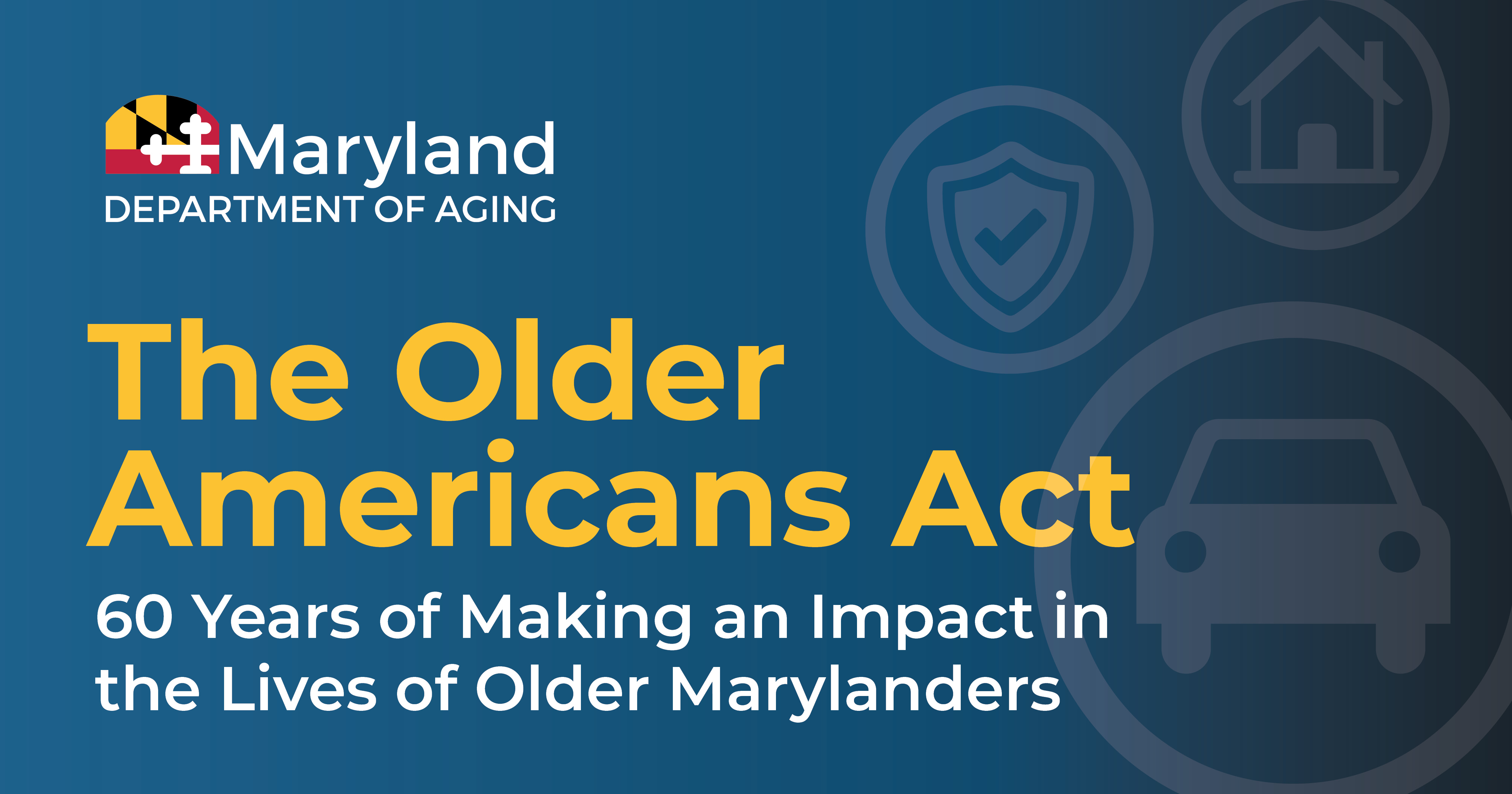
What is the Older Americans Act?
The Older Americans Act (OAA), originally passed in 1965, is a foundational federal law that supports a wide range of home- and community-based services for older adults across the country. The Maryland Department of Aging (MDOA) receives OAA funding to deliver essential programs and services throughout the state, including home-delivered and congregate meals, caregiver support, transportation, health and wellness initiatives, and protection against elder abuse. Through partnerships with local Area Agencies on Aging and community organizations, MDOA uses these resources to ensure that older Marylanders have access to the support they need to age safely and with a high quality of life.

|
“There’s a lot of things I can’t do that you automatically do every single day. These are things you take for granted until you cannot do them … The aide that helps me, I think she’s wonderful! If they stopped tomorrow, I don't know what I would do." ~Glenda
|
OAA's Impact in Maryland
For six decades, Older Americans Act (OAA) funding has supported a wide range of essential programs for older adults and people with disabilities, including nutrition services, transportation support, personal care, health and wellness education, resources for caregivers, and protections against exploitation. As we approach the 60th anniversary of the OAA, it’s important to recognize the critical importance of OAA funding and celebrate its impact on Maryland communities.

|
“I really like the broiled fish. Fish is hard for me to cook. I asked them to bring me more and they did! Without the help I wouldn’t be able to live here. It isn’t a lot of hours, but my quality of life would be a lot more challenging without it.”
~Kathleen |
OAA Programs in Maryland by the Numbers
-
Nutrition Services: Over 8,000 older Marylanders receive home-delivered meals each day. An additional 3,400 receive meals in a community setting. More than 3 million meals are served each year to older Marylanders.
-
Caregiver Support: More than 100,000 caregivers receive short-term respite care, adult day care services, transportation assistance, and other supports each year. More than 107,000 older Marylanders receive care services.
-
Senior Center Programs: More than 50,000 Marylanders participate in health promotion programs like exercise, chronic disease prevention classes, and immunization clinics, many of which take place at Maryland’s 117 Senior Centers.
-
In-Home Personal Care: Older Marylanders receive more than 20,000 units of support each year with chores and activities of daily living to help them live safely in their homes and communities.
-
Long-Term Care Support: Ombudsmen visit Maryland’s 1,850 assisted living and nursing homes nearly 7,000 times each year, resolving approximately 3,300 complaints from residents.
-
Transportation Services: More than 125,000 rides are provided each year to older adults who need help getting to medical appointments and running other important errands. Another 886 people receive other forms of transportation assistance.